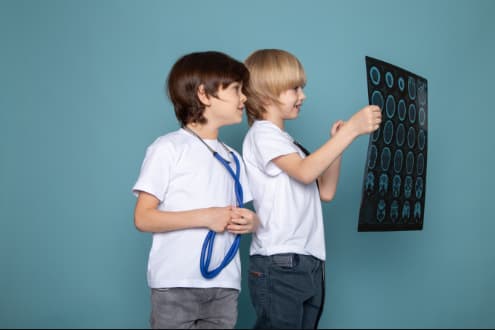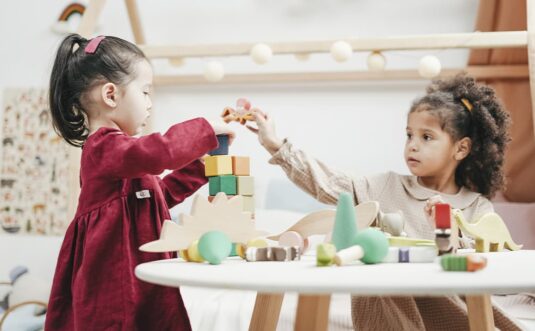Understanding neurological rehabilitation: definition and goals
Neurological rehabilitation is a specialized area of therapy focused on helping individuals recover from neurological disorders or injuries. This field aims to improve the functional abilities and overall quality of life for patients affected by conditions such as stroke, traumatic brain injury, spinal cord injury, multiple sclerosis, and Parkinson’s disease. The primary goals of neurological rehabilitation include restoring lost functions, enhancing independence, managing symptoms, and facilitating the reintegration of individuals into their daily lives and communities.
Rehabilitation programs are tailored to meet the unique needs of each patient, considering their specific condition, level of impairment, and personal goals. An effective rehabilitation program typically includes a combination of physical therapy, occupational therapy, speech therapy, and psychological support. The rehabilitation process is often long-term, requiring continuous assessment and adjustment of therapy plans to ensure optimal outcomes. By employing a patient-centered approach, neurological rehabilitation not only focuses on physical recovery but also emphasizes emotional and social well-being.
Common neurological conditions requiring rehabilitation
Various neurological conditions may necessitate rehabilitation efforts, each presenting unique challenges and recovery pathways. Stroke is one of the most common reasons for neurological rehabilitation, as it can lead to significant motor, cognitive, and speech impairments. Rehabilitation following a stroke aims to regain lost skills and develop compensatory strategies for affected functions. Similarly, individuals recovering from traumatic brain injuries may require extensive rehabilitation to address cognitive deficits, mobility issues, and emotional challenges.
Spinal cord injuries also necessitate specialized rehabilitation, often focusing on improving mobility, managing pain, and adapting to new physical limitations. Conditions such as multiple sclerosis and Parkinson’s disease present unique rehabilitation challenges due to their progressive nature, requiring ongoing intervention to manage symptoms and maintain functional abilities. Other conditions that may benefit from neurological rehabilitation include cerebral palsy, epilepsy, and peripheral neuropathy. Understanding the specific needs of each condition is crucial for developing effective rehabilitation strategies and supporting optimal recovery outcomes.
The role of a multidisciplinary team in neurological rehabilitation
A multidisciplinary team is essential in providing comprehensive care for individuals undergoing neurological rehabilitation. This team typically includes various healthcare professionals, such as neurologists, physical therapists, occupational therapists, speech-language pathologists, and psychologists. Each member of the team contributes their expertise to create a holistic rehabilitation plan that addresses the diverse needs of the patient.
Collaboration among team members is vital to ensure coordinated care. Regular meetings and discussions allow professionals to share insights and monitor the patient’s progress, making necessary adjustments to the treatment plan. This approach fosters an environment of continuous learning and improvement, enhancing the quality of care provided. Moreover, involving family members in the rehabilitation process is crucial, as they can offer valuable support and help reinforce therapeutic techniques at home. By working together, the multidisciplinary team can provide comprehensive support that addresses not only the physical aspects of recovery but also the emotional and social challenges that individuals may face.

Therapeutic approaches and techniques used in rehabilitation
Neurological rehabilitation employs various therapeutic approaches and techniques tailored to meet the needs of each patient. Physical therapy focuses on improving mobility, strength, and coordination through exercises and functional training. Techniques such as gait training, balance exercises, and strength conditioning are commonly used to promote physical recovery.
Occupational therapy is designed to help individuals regain the skills necessary for daily living and work. This may involve training in adaptive techniques, using assistive devices, and modifying environments to enhance independence. Speech therapy plays a crucial role in addressing communication difficulties and swallowing issues that may arise after neurological injuries. Therapists work on improving speech clarity, language comprehension, and cognitive-communication skills through targeted exercises.
Innovative techniques, such as neuromuscular electrical stimulation and robotic-assisted therapy, are also increasingly integrated into rehabilitation programs. These advanced approaches can enhance traditional therapies by promoting muscle activation and improving movement patterns. Additionally, virtual reality and telehealth have gained popularity in neurological rehabilitation, allowing patients to engage in therapy sessions remotely and providing access to specialized care regardless of location. These advancements represent a significant step forward in enhancing the effectiveness and accessibility of neurological rehabilitation.
The importance of family support in the rehabilitation process
Family support plays a pivotal role in the success of neurological rehabilitation. The recovery process can be challenging for patients and their families, often requiring significant emotional and physical adjustments. A supportive family environment fosters motivation, enhances compliance with therapeutic interventions, and provides the emotional resilience needed to navigate the complexities of recovery.
Family members can actively participate in the rehabilitation process by attending therapy sessions, learning about the patient’s condition, and reinforcing therapeutic techniques at home. They can also assist in creating a conducive living environment that accommodates the patient’s needs, such as organizing daily routines and ensuring access to necessary resources. Additionally, encouraging participation in social activities and community events can help patients regain confidence and social skills, further promoting recovery.
For families involved in caregiving, it is essential to prioritize self-care and seek support when needed. Resources such as educational materials, support groups, and counseling can provide valuable assistance and guidance throughout the rehabilitation journey. Moreover, individuals in the healthcare field, including those wearing medical apparel from trusted sources like medhoodie, can offer insight and support, emphasizing the importance of teamwork in the recovery process.

 Martinez Tracy
Martinez Tracy


